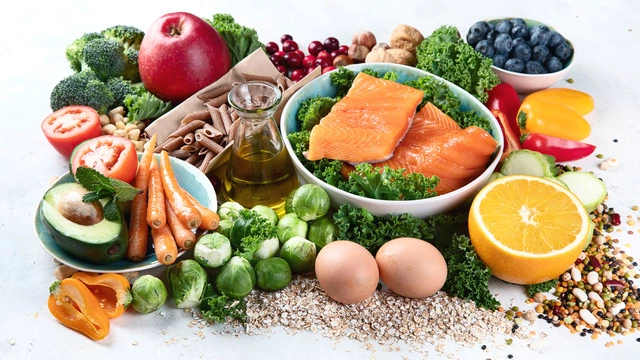The popularity of dietary supplements is gaining momentum, primarily due to the marketing efforts of manufacturers. And yet, is it possible to do without synthetic substitutes and get all the necessary vitamins and microelements from food?
 18891
18891
Necessity or “old wives’ tales”?
In his book Why Almost Everything We've Been Told About Food Is Wrong, epidemiologist Tim Spector speaks with great sarcasm about the popularity of dietary supplements. According to him, the hype around them is caused only by advertising gimmicks, reports of curing diseases with the help of vitamins (based on fragmentary scattered data) and “old wives' tales.”
“If you eat a healthy, balanced diet that includes plenty of brightly colored fruits and vegetables, fish, small amounts of dairy products and high-quality meats, and get daily sun exposure, you'll get enough vitamins and minerals for 99 percent of people,” Spector writes.
In some ways, the professor at King's College London is right – we can indeed get all our nutrients from food, and vitamin D from sunlight in sufficient quantities. Another question is what percentage of the population can afford to buy every day all the products necessary for a balanced diet, not to mention the fact that from about November to early March in most regions of Russia there is very little sun.
“In winter it traditionally gets worse quality of products: an apple that has been lying in a warehouse for six months has much less nutritional properties than when it was picked from the tree,” Andrei Kondrakhin, a clinical pharmacologist at the Chekhov Hospital, explained to MedPortal.
Food supplements are not food< /h2>
At the same time, you should not succumb to the illusion that all vitamins and microelements in the required quantities can be obtained from dietary supplements and with their help compensate for dietary deficiencies. This is wrong. For example, a recent study found that adequate intakes of vitamins A and K, magnesium, zinc, and copper are associated with reduced all-cause mortality. The caveat is that this only turned out to be true for nutrients from foods. Dietary supplements with the same microelements did not show such a positive effect.
Whole, that is, unprocessed foods have at least three advantages over supplements, even the highest quality and most expensive ones:
- fruits, vegetables and legumes contain many microelements that the body needs;
- They also contain dietary fiber (fiber), which is important for the prevention of type 2 diabetes, colorectal cancer, stroke and heart disease;
- they contain antioxidants, which act as a protective shield in the body against the harmful effects of free radicals, which can cause many diseases, including cardiovascular and cancer.
Who needs dietary supplements?
Mayo Clinic experts say vitamin supplements or fortified foods are essential for: Women who are pregnant or currently trying to get pregnant need folic acid at a minimum. , which prevents dangerous defects of the nervous system in the fetus;
What vitamins should you take for prevention?
Vitamin D deficiency is very common in Russia, and the further north you live, the more likely you are to have it. A lack of the “sunshine vitamin” increases bone loss, increases the risk of fractures, provokes fatigue and causes muscle weakness. By some estimates, a billion people worldwide suffer from such a deficiency. To find out for sure whether you are one of this billion, you can use laboratory tests.
The UK Department of Health (PHE) recommends that every adult take 10 mcg of cholecalciferol (400 IU) daily in autumn and winter. The US National Institutes of Health (NIH) states that an adult needs a dosage of 15 mcg (600 IU) per day.
The main thing is not to overdo it
The US National Institutes of Health says that taking vitamins within recommended dosages is unlikely to cause harm. The problem is that today many food products are additionally fortified with microelements. This means that with food we already get a little more than we think. If you add vitamins and minerals in capsules, instead of benefit, you can get hypervitaminosis and health problems.
So, an excess of calcium in the blood can cause the formation of blood clots, deposited along the walls of the arteries and contribute to the narrowing of blood vessels. An overdose of vitamin D, which is hotly recommended by social media users to “prevent” COVID-19, can cause nausea, hypotension and rapid heartbeat. In the worst case, it can lead to heavy urination and kidney problems.
The best way to avoid this — consult a doctor and do not prescribe dietary supplements based on advice from the Internet or friends.
